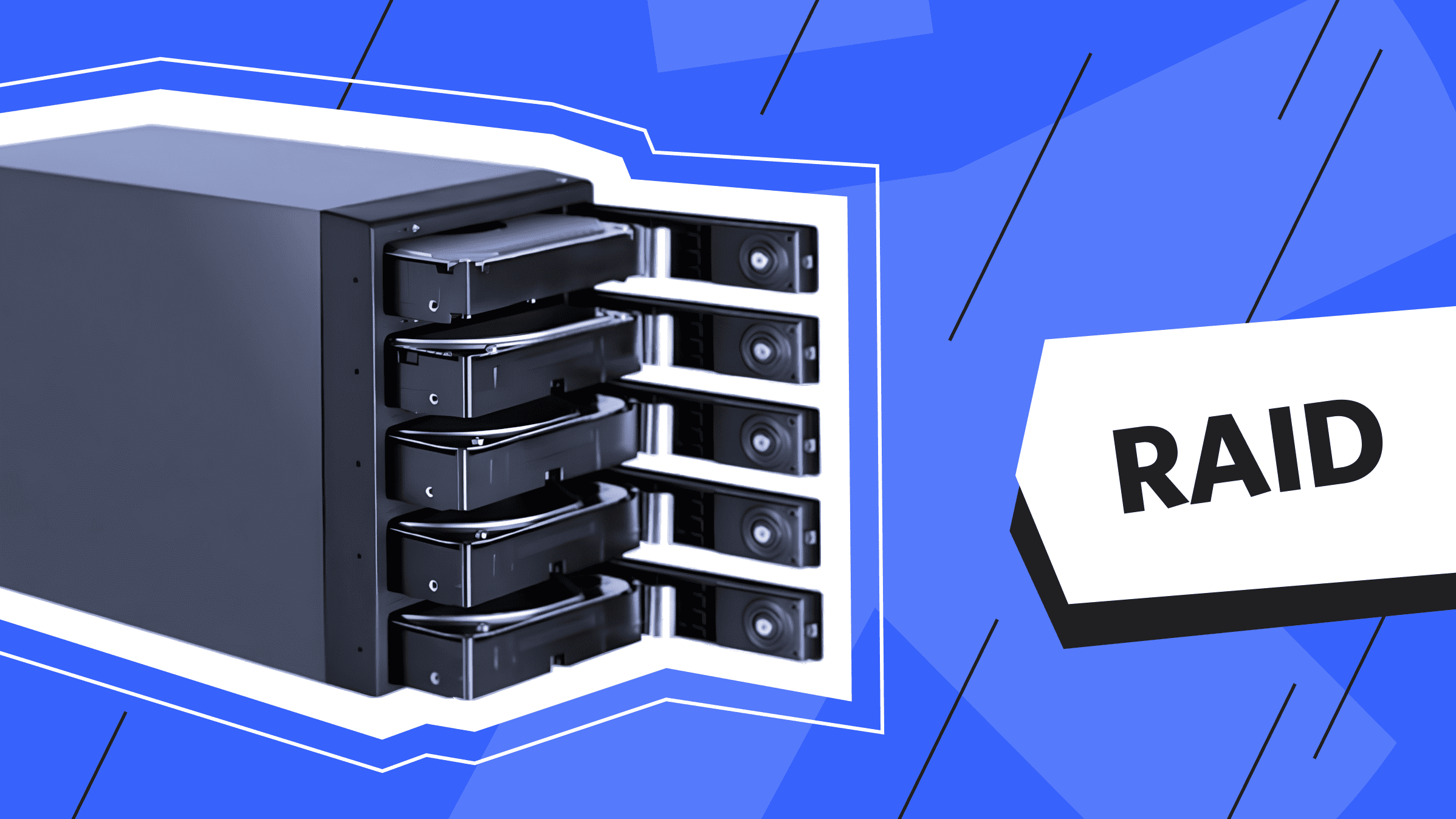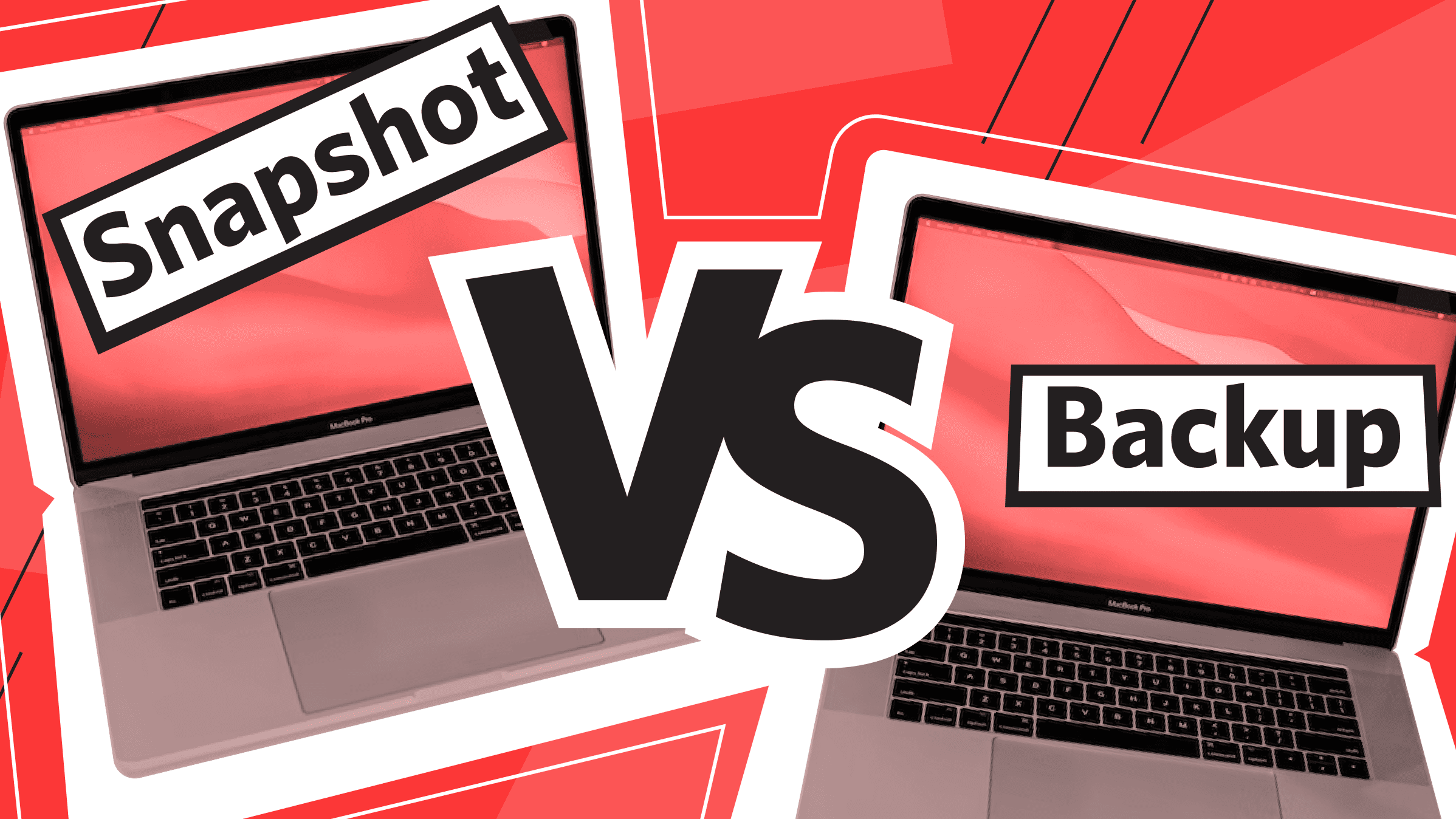
- What is Software as a Service?
- What is SaaS Hosting?
- SaaS Hosting Model: Principle of Operation
- Advantages of SaaS Hosting Services
- Challenges a Development Company May Face
- Comparing SaaS Hosting with Other Hosting Models
- What Type of Hosting to Choose for SaaS: Dedicated Server or VPS?
- Choosing the Right SaaS Hosting Provider
- Conclusion
The Software as a Service (SaaS) model has become a standard in many software industries, enabling users to access applications online easily. A key question for development companies building their own SaaS solutions is how to ensure a stable, secure, and scalable infrastructure for their applications.
SaaS hosting is the foundation for the successful launch and operation of specialized applications. It determines how quickly your application will be available to users; how well it will handle increasing workloads and the level of data security, it will provide. The market offers various hosting options, from dedicated servers to virtual machines to cloud platforms, each with its own unique characteristics.
This article will examine SaaS hosting in-depth, explaining how it works and differs from other hosting types. You’ll learn how to choose the best option for your product, evaluate the pros and cons of different models, and find recommendations for selecting a hosting provider.
What is Software as a Service?
SaaS (Software as a Service) is a software distribution model in which applications are hosted on a provider's servers and made available to users over the Internet. Instead of installing the program on a device, users access it through a browser or unique client by paying a subscription fee.
Examples of SaaS products include:
- CRM systems, such as Salesforce or HubSpot, help manage customer relationships.
- Collaboration tools like Google Workspace or Microsoft 365 provide document management, email, and other workflow features.
- Analytics and marketing systems like Tableau or Mailchimp.
- Project management platforms like Asana, Trello, and Jira.
The SaaS model is user-friendly, offering easy access, regular updates, and no need for infrastructure management. But what if you’re a developer rather than a user of SaaS products? The key challenge for development companies building their own SaaS solution is choosing the proper infrastructure. SaaS services require a functional and easy-to-use application and stable, secure, scalable hosting that ensures users have uninterrupted access to the product.
What is SaaS Hosting?

SaaS hosting is an application delivery model in which users access software over the Internet without installing or managing local infrastructure. Applications are hosted on the provider's servers in data centers, ensuring uptime, security, and availability.
This model suits various purposes, from office software and CRM systems to analytical tools and specialized business applications. SaaS hosting eliminates concerns about technical support, upgrades, and scaling, offering a convenient and affordable subscription-based service.
If your company is developing software, Software as a Service hosting can unlock significant new opportunities for your business.
SaaS hosting is an infrastructure solution for development companies that host their software on the hosting provider's servers. This allows:
- Developers to focus on improving application functionality rather than server management.
- Company clients to access the application via the Internet from any device that supports a web browser or a unique client.
The main advantage of this model for developers is that it enables them to provide customers with convenient and reliable access to the software product without worrying about the technical side of hosting, scaling, or data security. Plus, customer support is always available to help with any issues.
SaaS Hosting Model: Principle of Operation
SaaS hosting is based on the principle of centralized software hosting, providing access via cloud technology.
- Hosting on third-party servers. Applications are hosted on the hosting provider's servers in data centers, ensuring they are accessible anytime and anywhere in the world. The provider handles infrastructure, data storage, and software updates.
- Internet access. Users connect to applications through web browsers or specialized clients without requiring local installation.
- Subscription model. Instead of a one-time hardware purchase, companies pay for a SaaS hosting subscription that includes essential services such as customer support, upgrades, and security.
- Scalability. Development companies can quickly scale resources as demand increases, ensuring application stability.
With SaaS hosting, the company's software or application is hosted on dedicated or virtual servers running the application. Customers access the software interface over the Internet via a browser or a local client specifically designed for the program.
By partnering with a third-party hosting provider, software developers avoid the need to manage the infrastructure required to host the software themselves. Additionally, updates can be implemented instantly in a virtualized environment, eliminating the need for end users to download the latest version or patch.
Advantages of SaaS Hosting Services

SaaS hosting enables companies to focus on their core business by minimizing IT infrastructure and operational management costs. The key benefits of this model include:
- Save time and resources. SaaS hosting eliminates the need to manage servers, complex configuration, and maintenance. These tasks are handled by the provider, allowing your team to concentrate on development, improving functionality, and meeting user needs. This is especially important for smaller companies with limited technical and human resources.
- Affordability. One of the primary advantages of the SaaS model is that users can access the application from anywhere with an Internet connection. This is especially beneficial for companies with distributed teams or a global customer base. Clients' devices also don't need to be powerful since all computing is done on the server side. This increases employee mobility, enabling work from tablets, laptops, or even smartphones.
- High level of security. Data security and protection against cyber threats are essential for any SaaS product. SaaS hosting providers offer built-in encryption, backup, and monitoring mechanisms. In addition, many reputable providers also comply with international security standards such as ISO 27001 or SOC 2.
- Scalability. SaaS hosting offers flexibility in resource usage. If user numbers or application load increases, you can easily scale resources—adding more CPU power, memory, storage, or even entire servers. Providers allow you to adapt to changes quickly, minimizing downtime and avoiding the need for infrastructure changes.
- Lower upfront costs. The subscription-based model of SaaS hosting spreads infrastructure costs over time. This is especially advantageous for startups and small businesses seeking to minimize risks and allocate budgets to other areas of development. Instead of a significant upfront investment, companies pay only for the resources they use.
The benefits of SaaS hosting make it an optimal choice for companies building and scaling their cloud-based applications. However, like any hosting solution, it has its weaknesses.
Challenges a Development Company May Face
Developing and deploying SaaS services comes with various challenges alongside its benefits. These challenges demand a strategic approach and constant monitoring by the development organization to ensure stable application performance and meet customer expectations.
One of the most important tests is ensuring the application's high availability. Customers expect SaaS solutions to be accessible 24/7 without interruption or downtime. Even short-term downtime can harm a company's reputation and result in financial losses. To mitigate such risks, it is crucial to implement a fault-tolerant architecture, conduct regular stress tests, and monitor system performance in real time.
Data security also requires particular attention. SaaS hosting stores users' confidential information, making cyberattacks, data breaches, and unauthorized access significant threats. To address these risks, it is essential to implement encryption, secure data transfer protocols, regular security audits, and threat monitoring tools. A reliable hosting provider can offer solutions to enhance security.
Familiarity with penetration testing and security auditing can further help ensure stable operations.
Maintaining high software performance presents another major challenge. As the number of users or the volume of data increases, SaaS hosting may encounter response issues. Developers need to adopt a scalable architecture and continuously monitor performance to quickly identify and resolve bottlenecks.
Infrastructure scaling can also be difficult, especially when an application's popularity surges unexpectedly. If the architecture was not designed to accommodate rapid increases in load, it can lead to outages and performance degradation. While horizontal and vertical scaling are potential solutions, opting for a SaaS hosting provider with built-in scalability is often a better choice.
Additionally, managing hosting costs is a critical aspect of SaaS hosting. Inefficient server utilization or paying for unused resources can inflate project budgets unnecessarily.
Ultimately, most challenges stem from insufficient attention to security and availability by both the development company and the hosting provider. Therefore, selecting the right business partner and assembling a team of experts is essential to overcoming these obstacles.
Comparing SaaS Hosting with Other Hosting Models

SaaS hosting is a leading model for delivering applications over the Internet, but it is not the only option. Other hosting models include traditional proprietary hosting, managed hosting, and IaaS (Infrastructure as a Service). These approaches differ in operating principles, the division of responsibility between the customer and the provider, and scalability.
For development companies, choosing the proper infrastructure to host their software requires understanding the differences between SaaS hosting and other models. SaaS hosting is unique because it provides a complete service cycle, covering everything from server management to ensuring stable application performance. This allows developers to focus on enhancing product functionality rather than managing technical tasks.
Unlike in-house servers or managed hosting, SaaS hosting provides more automation and reduces the need for hands-on infrastructure management. Additionally, it offers scalability, high availability, and robust security, making it an attractive solution for hosting applications.
Hosted Software vs. SaaS
Hosting software on your own servers provides developers with complete control over the infrastructure but requires significant resources. The company is responsible for every aspect: server setup, security, regular updates, backups, and troubleshooting. This approach suits organizations with strong technical teams, specific infrastructure requirements, or the need for complete control over their data.
SaaS hosting, by contrast, shifts all technical responsibilities to the provider. Developers can deploy applications quickly while minimizing setup and maintenance costs. This model is ideal for teams aiming to reach the market faster without spending time managing servers or troubleshooting technical issues.
Managed Hosting vs. SaaS
Managed hosting offers flexibility and support with server administration. The provider takes care of tasks like infrastructure setup, monitoring, security, and server software updates. However, the development team retains responsibility for customizing and maintaining the application itself.
SaaS hosting, on the other hand, eliminates these responsibilities entirely. This enables development companies to focus exclusively on refining product functionality and improving the user experience.
With our managed VPS, you can maximize your business results while we take care of the administration.
What is IaaS?
Infrastructure as a Service (IaaS) is a cloud hosting model that provides developers with access to essential infrastructure components such as virtual servers, storage, networking, and other resources. Unlike SaaS hosting, IaaS does not include a pre-configured environment for applications; developers must configure, deploy, and manage their applications independently.
This model is designed for those who require flexibility to customize their infrastructure and have the resources to manage it but prefer not to maintain on-premises servers. For instance, IaaS enables customization for complex projects and offers control over server configurations and operating systems. However, it demands advanced technical knowledge and significantly more time for setup compared to SaaS hosting, where the infrastructure is pre-configured and ready to support your product.
In contrast, SaaS hosting caters to developers seeking a simplified, pre-built platform to bring applications to market quickly.
What Type of Hosting to Choose for SaaS: Dedicated Server or VPS?
Choosing between a dedicated server and a virtual private server (VPS) for your SaaS product depends on several factors, including the size of your application, performance requirements, budget, and plans for future growth. Let's examine the pros and cons of each option from the perspective of SaaS product development and hosting.
Dedicated Server for SaaS

A dedicated server is a physical machine allocated to a single client. With a dedicated server, you have complete control over all resources, which you can utilize exclusively to host your application.
Advantages:
- High performance. All server resources are exclusively available, ensuring stable operation even under heavy loads.
- Configuration flexibility. The server can be customized to meet the specific needs of your SaaS product, including operating system, hardware configuration, and specialized software.
- Ideal for large projects. Dedicated servers are well-suited for applications with significant processing or storage requirements.
Drawbacks:
- High cost. Dedicated servers are more expensive than VPSs, which can be a significant factor for startups or small teams to forgo an entire physical server.
- Limited scalability. Scaling involves adding new servers, which takes time and resources. However, you can always purchase an additional dedicated server and make it part of your Software as a Service hosting.
- Management complexity. Operating the server requires some technical knowledge. However, if your hosting provider offers administration services, this can reduce the burden.
When should you choose a dedicated server? Opt for it if your SaaS product requires high performance and is expected to handle substantial loads from the start, or if you manage large datasets requiring robust security and control.
Virtual Private Server for SaaS

A virtual private server (VPS) is a virtualized server that shares the resources of a physical machine among multiple clients. It offers a balance of cost, performance, and scalability.
Advantages:
- Affordability. VPS hosting is much cheaper than dedicated servers, making it a cost-effective option for startups and small businesses.
- Scalability. Adding resources (CPU, RAM, or disk) to a virtual private server is straightforward and doesn’t require moving to a new server.
- Managed environment. Many providers offer VPS management services, reducing the technical burden on developers.
- Flexibility. Despite the shared nature of physical hardware, a VPS provides enough control to tailor the server to your needs.
Drawbacks:
- Limited resources. Performance may decline under heavy loads if the VPS resources used for SaaS hosting are insufficient for your application.
- Resource sharing. Other clients on the same physical machine can affect overall performance, although this issue is minimal with quality hosting providers.
- Not suitable for large projects. A VPS can quickly become inadequate for SaaS hosting if your application is actively growing.
When should you use a VPS for SaaS hosting? Choose a VPS if you are just starting to develop a SaaS product, expect a low initial load, have a limited budget, or want to test your application before investing in more expensive infrastructure.
This ideal solution for large-scale projects offers unbeatable protection, high performance, and flexible settings.
Choosing the Right SaaS Hosting Provider
Selecting the right SaaS hosting provider for your product is a crucial decision that directly impacts your application's stability, performance, and scalability. Development companies creating SaaS solutions must evaluate several factors to ensure a high-quality service for their customers and efficient infrastructure management.
What to look for when choosing a hosting provider?
- Infrastructure scalability.
Your SaaS hosting should easily accommodate load growth, whether due to increased users, data volume, or the addition of new features. Look for providers that offer flexible scaling solutions, such as quickly increasing resources (CPU, RAM, storage) and the ability to add servers as needed.
- Reliability and uptime.
High uptime (99.9% or higher) is essential for SaaS applications, as even brief downtime can lead to customer dissatisfaction and damage your reputation. Investigate the vendor's history, fault-tolerant systems' availability, and data backup solutions.
- Server performance.
Users expect fast, seamless application performance. Evaluate the provider’s technology stack, such as processors, SSD disks, and low-latency networks. Providers offering NVMe disk-enabled servers or dedicated resources for SaaS applications tend to perform better.
- Data security.
Security is paramount for any SaaS product. Verify that the provider offers up-to-date security features such as data encryption, protection against DDoS attacks, regular security updates, and compliance with industry standards (e.g., GDPR, ISO 27001).
- Locations and legislation.
If your SaaS product targets an international audience, consider regional data storage regulations. Providers with data centers in different countries can help ensure compliance with local laws like GDPR in Europe or CCPA in the U.S. For example, is*hosting works with data centers in over 35 locations worldwide.
- Cost and flexibility of plans.
Choose the subscription plan that aligns with your current budget and scales as your product grows. Consider whether the provider allows for custom server configurations tailored to your specific needs.
- Technical customer support.>
Fast and professional support is vital for SaaS developers. Confirm the provider offers 24/7 technical support, fast issue resolution, and dedicated teams for enterprise-level customers.
- Integration with other services.
Modern SaaS products often require integration with external APIs, databases, and analytics tools. Ensure the SaaS hosting solution supports essential technologies like Docker, Kubernetes, CI/CD pipelines, and high-level databases (e.g., PostgreSQL and MongoDB).
How to Make the Right Choice?

Before selecting a hosting provider, outline the specific requirements for your SaaS product. Assess both your current needs and future growth potential. For instance, if you’re developing a CRM system, you may need robust data storage and high reliability. On the other hand, if it's a video conferencing platform, prioritize network speed and server performance.
It’s also wise to test multiple providers before making your final decision. Many offer free trial periods that let you evaluate their performance firsthand. You can also use special services (such as Looking Glass) to test the communication latency of servers in different locations.
Choosing the right SaaS hosting provider is an investment in your product’s success. With reliable infrastructure and quality support, you can focus on delivering value to your customers while minimizing technical risks and management complexity.
Conclusion
SaaS hosting is the foundation upon which the success of any software product is built. For development organizations, choosing the right hosting provider is a strategic decision that influences time to market, application scalability, and quality of the user experience.
The ideal hosting solution should be reliable, high-performing, and flexible, offering infrastructure options that ensure high availability. With the right provider, you can focus on developing and improving your software.
Ultimately, the success of a SaaS product depends not only on its functionality but also on a stable infrastructure that ensures smooth, uninterrupted operation!
Dedicated Server
Get smooth operation, high performance, easy-to-use setup, and a complete hosting solution.
From $60.00/mo- What is Software as a Service?
- What is SaaS Hosting?
- SaaS Hosting Model: Principle of Operation
- Advantages of SaaS Hosting Services
- Challenges a Development Company May Face
- Comparing SaaS Hosting with Other Hosting Models
- What Type of Hosting to Choose for SaaS: Dedicated Server or VPS?
- Choosing the Right SaaS Hosting Provider
- Conclusion


